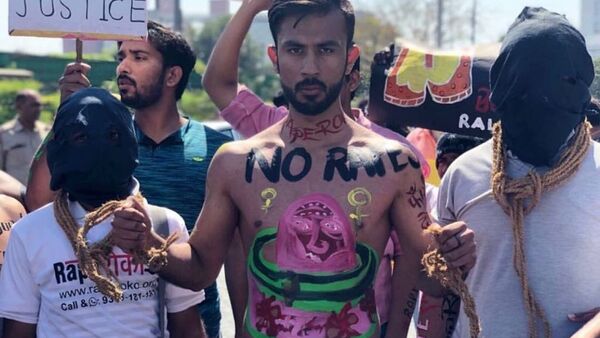After seven long years, four convicts in the infamous Nirbhaya gangrape will be hanged to death in the wee hours on Friday as the Delhi court on Thursday rejected all petitions filed by the convicts who were till now taking refuge in legal remedies to evade the death sentence.
All four of them - Mukesh Singh, Akshay Thakur, Pawan Gupta and Vinay Sharma – will be hanged at 05:30 local time in the morning at Delhi’s Tihar prison.
While six suspects were held by police immediately following the attack, the prime suspect Ram Singh allegedly committed suicide in jail and another accused was a juvenile who served three years in a reform facility and released, leaving the four remaining culprits to face a death sentence.
The Gruesome Crime
A 23-year-old medical student was subjected to heinous physical and sexual torture on 16 December 2012 in a moving bus in the national capital while she was returning home along with her male friend. The student took a private bus home in which the six rapists were the only other occupants of the vehicle.
Such was the brutality of the physical and sexual assault carried out on the woman that the whole nation was outraged and came out of their homes in defiance of prohibitory orders and demanded justice for her; death for the six rapists and changes in the law for the safety of women.
Unfortunately, the girl succumbed to her injuries in Singapore's Mount Elizabeth Hospital where she had been transferred because her condition continued to deteriorate while in Delhi hospital.
The Legal Course
It was in the aftermath of this rape case that fast courts to deal with sexual offences were put in place by the legal system of the country. It convicted all four accused in September 2013 of murder, gang rape, and unnatural offences.
While Delhi’s Patiala court awarded the death penalty to all four accused the same month, the verdict was subsequently upheld by the higher courts. In 2017, the Supreme Court of India upheld the death sentence, calling it a crime that fell under the “rarest of rare category”.
A death warrant was issued for the four convicts by Delhi Court on 7 January 2020, scheduling the execution for 22 January. However, the rapists resorted to legal remedies in a bid to take advantage of the slow-moving judicial system and delay their execution or even get it reduced to life imprisonment.
In the process, the death sentence was first postponed to 1 February and then 3 March. A fresh death warrant was again issued by Delhi court for 20 March.
Changes In Law For Women's Safety
Though the barbaric crime shattered the nation, it led to the formulation of stringent laws and policies for the safety of women and the faster delivery of justice.
In 2013, Criminal Law (Amendment) Act, 2013 was amended it make it stricter. The amendments led to the widening of the definition of rape - including oral sex and insertion of objects - and increasing the punishment for culprits by removing the seven-year upper limit for punishment for rape, while also including a death sentence for repeat rape offenders. The two finger test performed by doctors on victims to confirm rape cases was also prohibited after the amendment.
For the first time, Fast Track Courts were set up for the speedy delivery of justice – with sexual offence cases to be decided within two months of filing a chargesheet - and a 'Nirbhaya Fund' was created for programmes dedicated to women’s safety.
New sexual offences such as stalking, voyeurism and unwanted sexual advances, liable for punishment, were also included in the law.




